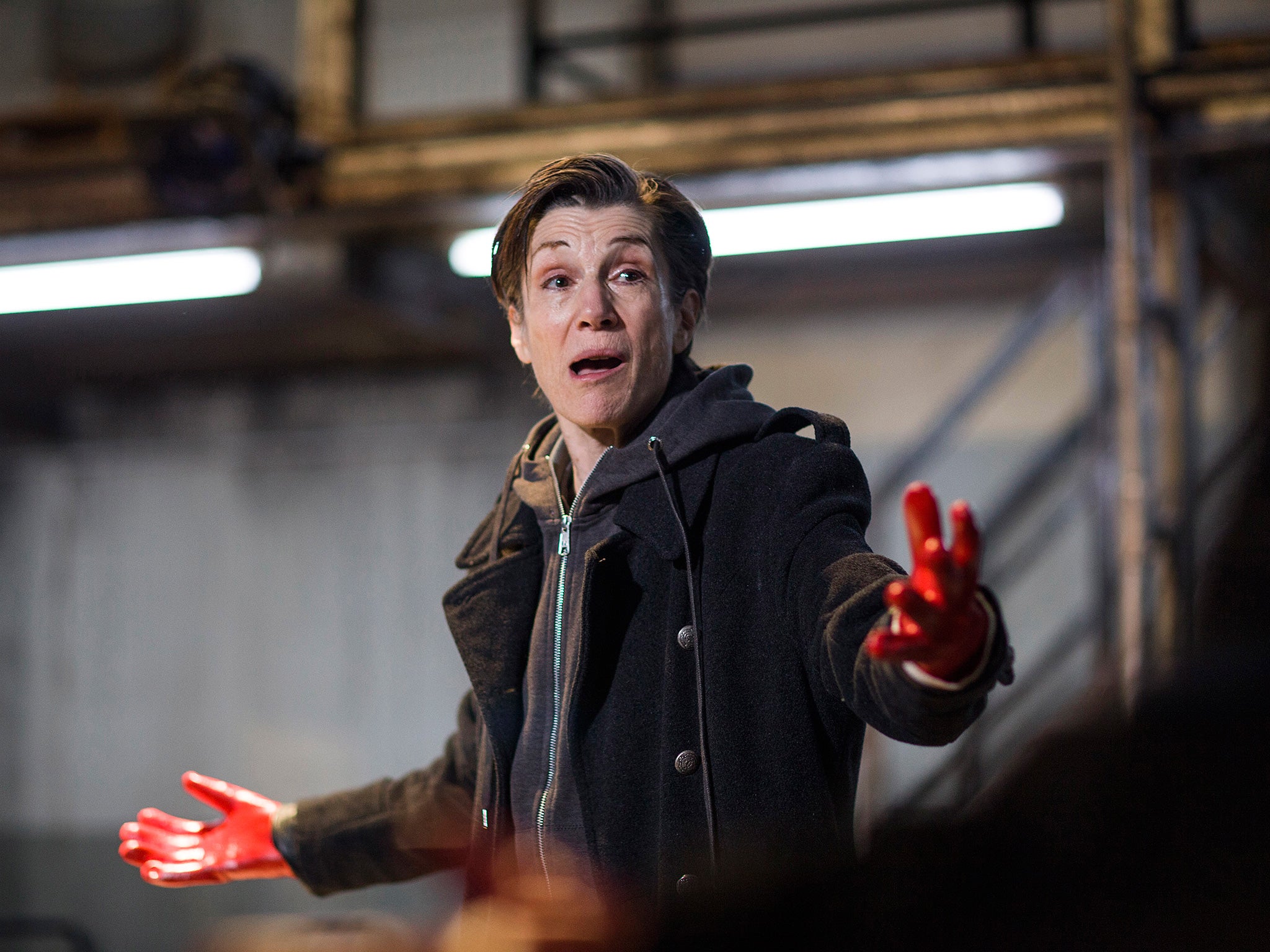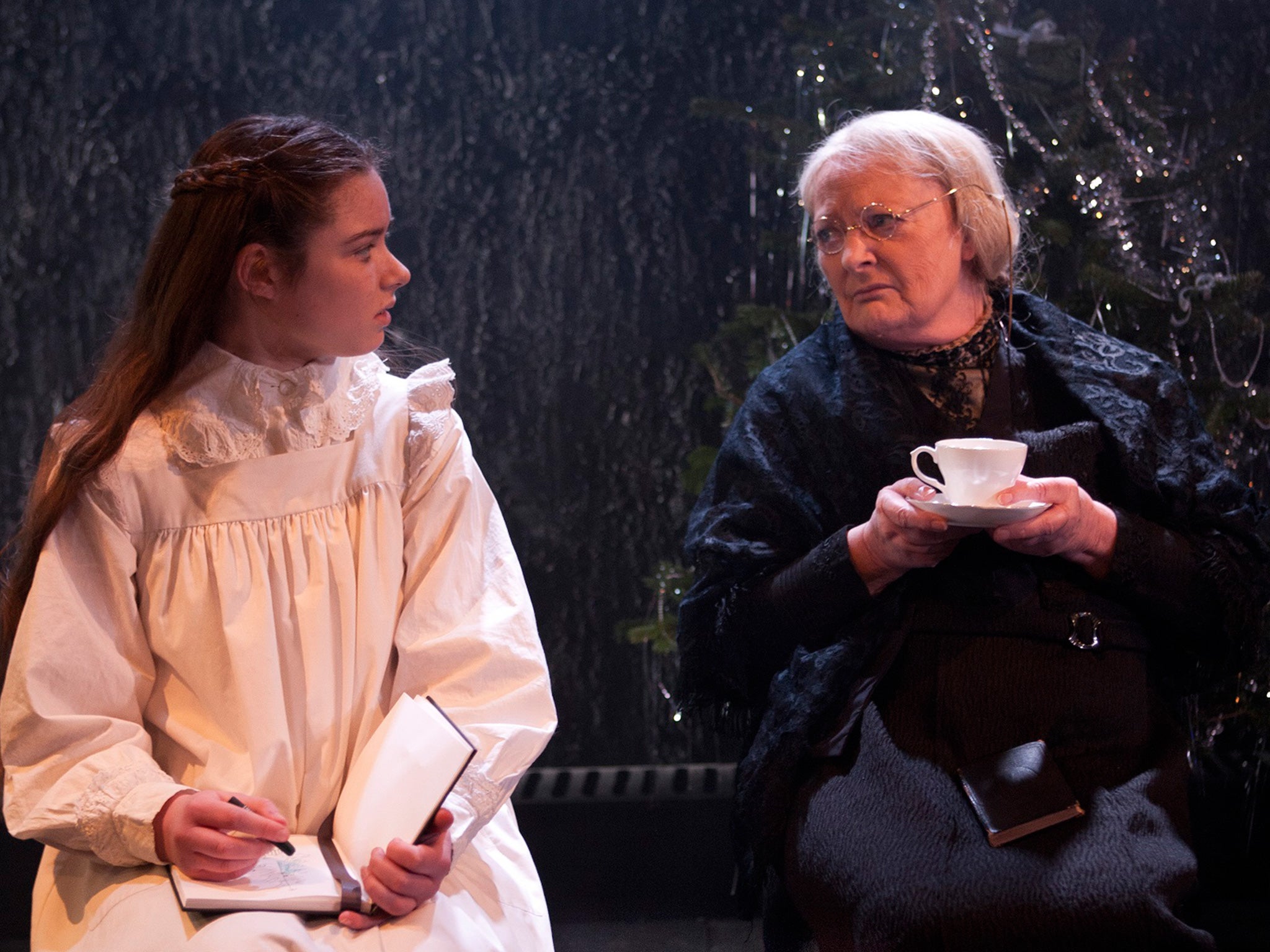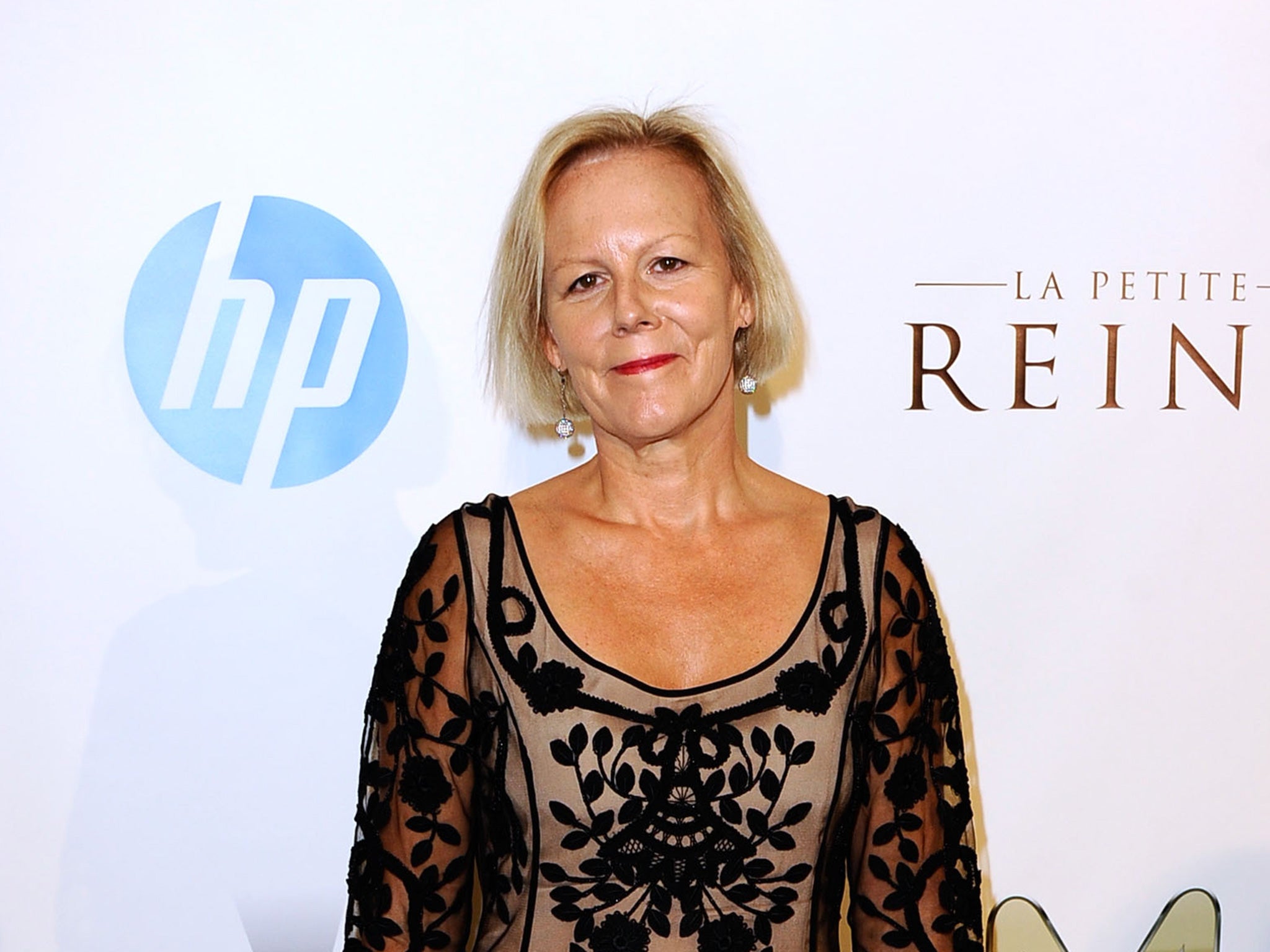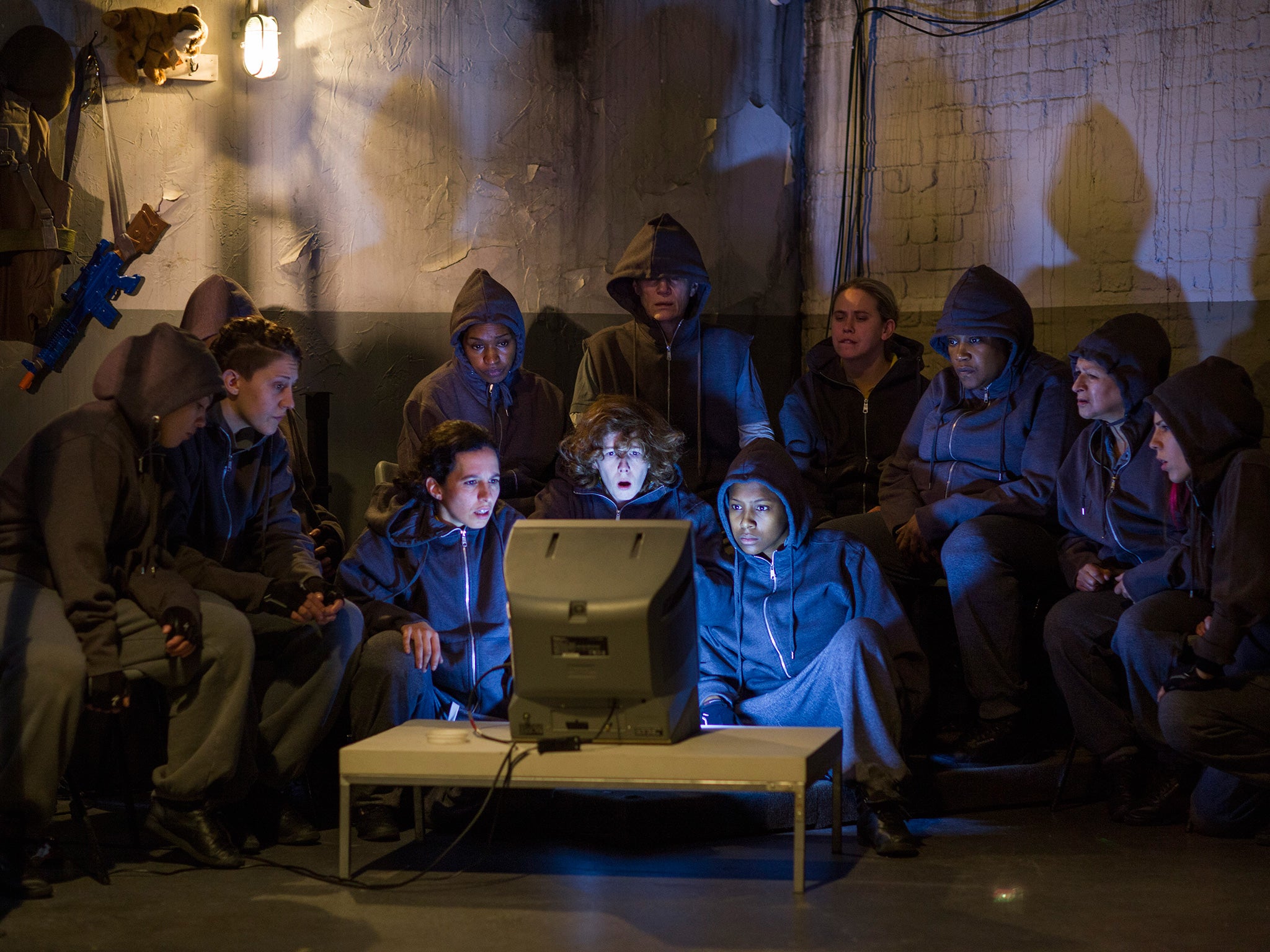Misogyny is rife in film and theatre, but brilliant, dynamic women are coming through
Plays with strong female leads like 'The Father' aim to redress the balance

Your support helps us to tell the story
From reproductive rights to climate change to Big Tech, The Independent is on the ground when the story is developing. Whether it's investigating the financials of Elon Musk's pro-Trump PAC or producing our latest documentary, 'The A Word', which shines a light on the American women fighting for reproductive rights, we know how important it is to parse out the facts from the messaging.
At such a critical moment in US history, we need reporters on the ground. Your donation allows us to keep sending journalists to speak to both sides of the story.
The Independent is trusted by Americans across the entire political spectrum. And unlike many other quality news outlets, we choose not to lock Americans out of our reporting and analysis with paywalls. We believe quality journalism should be available to everyone, paid for by those who can afford it.
Your support makes all the difference.As the final strands of the Captain’s sanity unravel towards the close of August Strindberg’s The Father, the titular patriarch takes us on a grand tour of literary female infidelity. “It’s all here. In these books. They prove it. I’m not mad. Look. The Odyssey. Book One, page 6. The Upsala translation. Telemachus talking: ‘My mother swears he’s my father. But how do I know? No man knows for sure.’ That’s Telemachus talking. Talking about Penelope. The most virtuous of women. Wonderful. Or the prophet Ezekiel. Harken to old Ezekiel: ‘The man who says, “Here’s my father” is a fool. Who can tell – whose loins he comes from?’ Couldn’t be clearer. More? Pushkin. Alexander Pushkin. Russia’s greatest poet. I quote: ‘The cause of his death was the rumour that his wife had been unfaithful. Not the bullet that pierced his chest. He swore on his deathbed – she was innocent.’ End quote. What an arsehole. How could he swear that?”
The Captain is by no means the first man to believe that woman as drawn by male writers is woman as she truly is. Indeed, so commonplace is this assumption that it had already been satirised by Jane Austen nearly a century earlier: in Persuasion, Captain Harville says to Anne Elliot, “I do not think I ever opened a book in my life which had not something to say upon woman’s inconstancy. Songs and proverbs, all talk of woman’s fickleness. But perhaps, you will say, these were all written by men.”
Male writers, along with their inevitably male perspective of womanhood, still dominate the cultural landscape today. A 2010 survey of 14 major US and UK publishing houses found that only 30 per cent of the authors they published that year were women. In 2012, in the London Review of Books, the New Statesman, and the Mail on Sunday, the percentage of reviews that were of female-authored books were, respectively, 8.7 per sent, 26.1 per cent and 30.4 per cent. And in 2011-12, 65 per cent of new plays produced were by male playwrights.
This, says theatre director Fiona Laird, is a problem, because “an artist’s work is their experience”. If “the overwhelming majority of plays that the public sees are written by men”, the vast majority of productions are presenting the human experience as seen through “the prism of men’s eyes”. Actresses can spend a whole career, “having to shoehorn themselves into a man’s vision of what a woman looks like”.
The trouble with this vision, says Laird, is that women are only ever relative beings: “Men see women as mothers or lovers”. And the vision isn’t limited only to male writers. Laird recalls overhearing a director who had just cast a young female role commenting, “that’s me set up for the summer”. Similarly, a recent casting call read more like an advert for the director’s fantasy girlfriend than a serious career prospect: “Windswept hair, sexy, a “don’t care how I look attitude”. Just woken up {…] She giggles with three fingers in front of her mouth and shakes her shoulders, she thinks about boys who wear leather sandals […] She has cute, smiley girlfriends who don’t talk, they have sleepovers. She bites her bottom lip when she’s turned on […] She makes flapjack.” Another from this month wanted a woman who “must be enough of a visual aesthetic to be believably the prey of a stalker”. Laird tells me she just got off the phone with an actress who took time off to have children, and now can’t find work: “A casting director said, ‘Well, darling, there are no parts for women in their thirties. You just won’t work’.”
And it’s not just actresses. “I am saddened,” Laird says, “by having, for the last 20 years, watched fantastically talented young female directors coming up through the ranks and then so many of them just disappearing. There’s the age-old problem of as soon as anyone goes off and has a baby, that’s it. Gone.” She clicks her fingers.

Laura, the main female role in The Father, does not seem to deviate from the standard script for women in the theatre. She is a mother, and presented as the irrational female opposite to the scientific, meteorite-studying father. She wishes to possess her child, whereas the Captain wishes to set Bertha free. And, ultimately, she manipulates her husband into a state of madness, incarceration in an asylum, and spiritual and emotional, if not physical, death. Her reason for doing this calls on another sexist trope: her desire for power denied to her as a woman.
But when I speak to Abbey Wright, director of a new production of Strindberg’s play opening this week, she rejects the idea that The Father is misogynistic. If it’s anything, it’s misanthropic, she tells me: equal-opportunities hatred of both men and women. Producer Emily Dobbs, who also plays the role of Laura, agrees. “We both came into this with very similar feelings about it, which is that it’s not a misogynistic or a feminist piece. You can analyse the script and see both perspectives”.
But while Wright maintains an even-handed stance on the two characters, saying she hopes the audience “can root for them both”, Dobbs turns out to be a little more partial. “I empathise with [Laura]. I think she’s desperate. She’s been living with a man who’s made her feel like she has no personality really, and no worth. So all her actions come out of a place of survival.”
Laura certainly is that all too rare commodity in theatre: a complex and powerful female role. Strindberg’s play may be called The Father, but the web whose weaving we witness is entirely of Laura’s devising. And rather like the way so many of us enjoyed Gone Girl, there is something intensely pleasurable about watching a woman, dreadful though she may be, in complete control of a sequence of events.

Perhaps it’s because it’s still so unusual: a recent report by Tonic Theatre, an organisation that campaigns for gender equality in theatre, not only found that “the majority of roles in drama currently being produced are male”, but that “when women are on stage, their roles are more likely to be peripheral to the action, and played by actresses of more limited age ranges, ethnicities and physical ‘types’ than their male counterparts.”
The problem extends beyond the theatre, says veteran director Phyllida Lloyd who was on the jury for Best British Film at the Baftas this year. “There was a scandalous lack of films with female-driven narratives that we were asked to watch.” But this is perhaps not surprising if British films are anything like their Hollywood counterparts: recent research by the Geena Davis Institute found that women made up only 28 per cent of speaking roles. Similarly, Lloyd says she has grown “despondent” about directing opera, something “which had hitherto been a passion and fundamental” to her work. “I began to think, well I can’t go on directing The Dialogue of the Carmélites for the rest of my life. But that was the only opera I’d ever worked on where women were not just the love interest, where they were actually there for their spiritual, philosophical and intellectual power.”
Not one to remain despondent for long, however, Lloyd has struck upon a solution for the paucity of female roles: gender-blind casting. Laird thinks this is a brilliant idea and points out that for some time colour-blind casting has been the norm. “You couldn’t in the middle of a stage production of, let’s say, Wolf Hall, have a woman coming on playing Henry VIII and people not comment on it, but actually in a stage production you could probably have a black actor coming on playing him. I mean, Nigel Farage probably wouldn’t like it, but…”

But it’s not just Farage and his acolytes who might protest against gender-blind casting, as Lloyd found out when she directed an all-female Julius Caesar at the Donmar Warehouse in 2012. Tim Walker of The Daily Telegraph called the production an “outrageous liberty”, “an abomination”, and accused Lloyd of “making the voguish point that there are a lot of women of a certain age who are not getting the roles that are their due because the parts aren’t being written for them”, before condemning her for exhibiting the twin sins of “political correctness and vanity”. In the same paper, Charles Spencer made a similarly snide comment about “actresses complain[ing] that there aren’t nearly enough decent parts for women”, and referenced “Dr Johnson’s notorious line” comparing women’s preaching to a “dog’s walking on his hind legs”, before remarking in apparent surprise that “in fact some of the acting is excellent”. Charles Moore characterised Lloyd as “angry” over the lack of substantial roles for women; as with Spencer and Walker, the insinuation was that this irrational woman had allowed her emotions to get the better of her. It perhaps goes without saying that both Spencer and Walker found much to celebrate in all-male productions of Twelfth Night and Richard III, with Spencer only mentioning gender in order to praise the “poignancy” and “humour” brought to a couple of female roles by “burly blokes”. Not quite Frances Barber’s “ranting” (Spencer) “old fishwife” (Walker).
These intensely negative reactions to what Lloyd Evans in The Spectator denounced as “wrong-sex casting”, show that we have some way to go. But there are glimmers of hope. Two years after The Telegraph panned Lloyd’s all-female Julius Caesar, it gave her all-female Henry IV a glowing four-star review. And although Laird has reams of horror stories from her years as a director about “older male actors” who “just cannot cope with a woman in authority” (“I remember an actor once saying to me, ‘Oh, you’re gonna have to cover up your legs, I can’t concentrate with you sitting there like that’, in the middle of a rehearsal”), she does think that “people are getting better”. And as for Dobbs and Wright, they insist that things are changing. They admit that theatre is still dominated by white middle-class men and their stories, but, “there’s a new generation coming through now”, full of brilliant, dynamic women. Time will tell whether or not, in contrast to their forebears, this new generation of women manage to overcome the inevitable obstacles (late nights, touring, unpredictable runs) that they will face. But sitting in the sunshine with the determined Dobbs and Wright, I feel little doubt that they don’t intend to give in without a fight. “I think a lot of it is keeping going,” says Wright. “It’s the doing.” Dobbs’s Laura, I think, would agree.
Laurie Slade’s adaptation of ‘The Father’, directed by Abbey Wright and starring Emily Dobbs and Alex Ferns will run until 11 April at Trafalgar Studios in London
Join our commenting forum
Join thought-provoking conversations, follow other Independent readers and see their replies
Comments